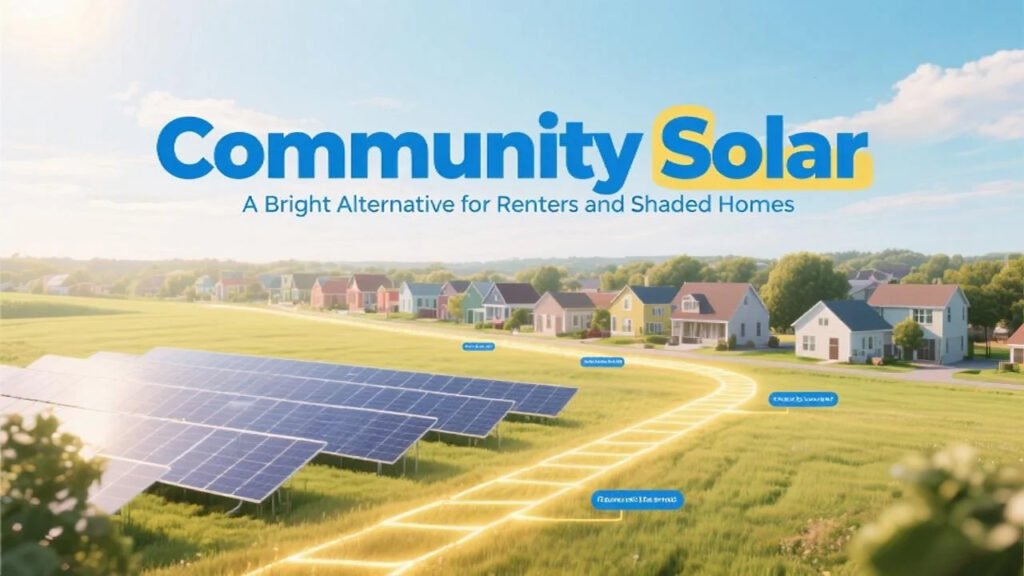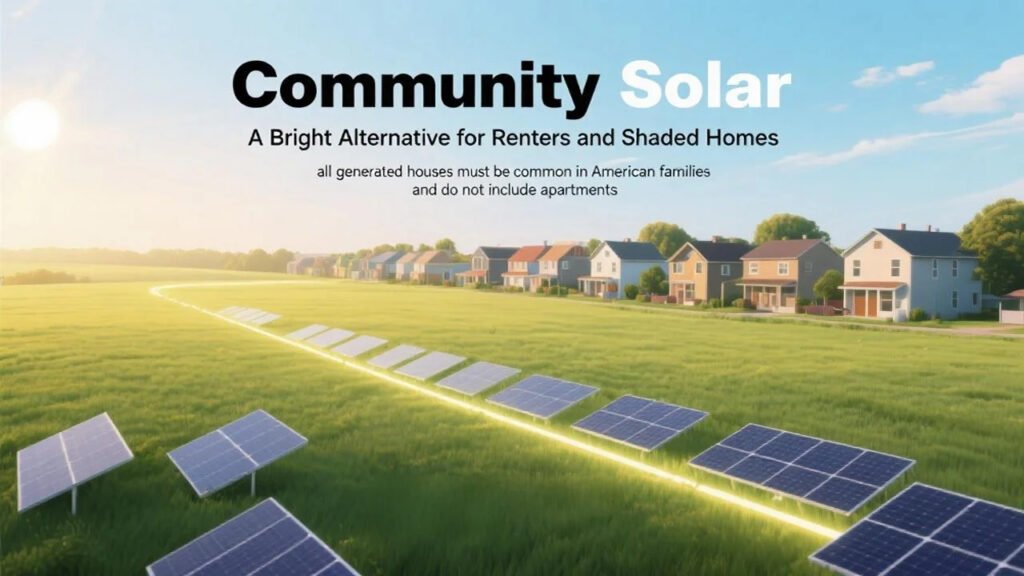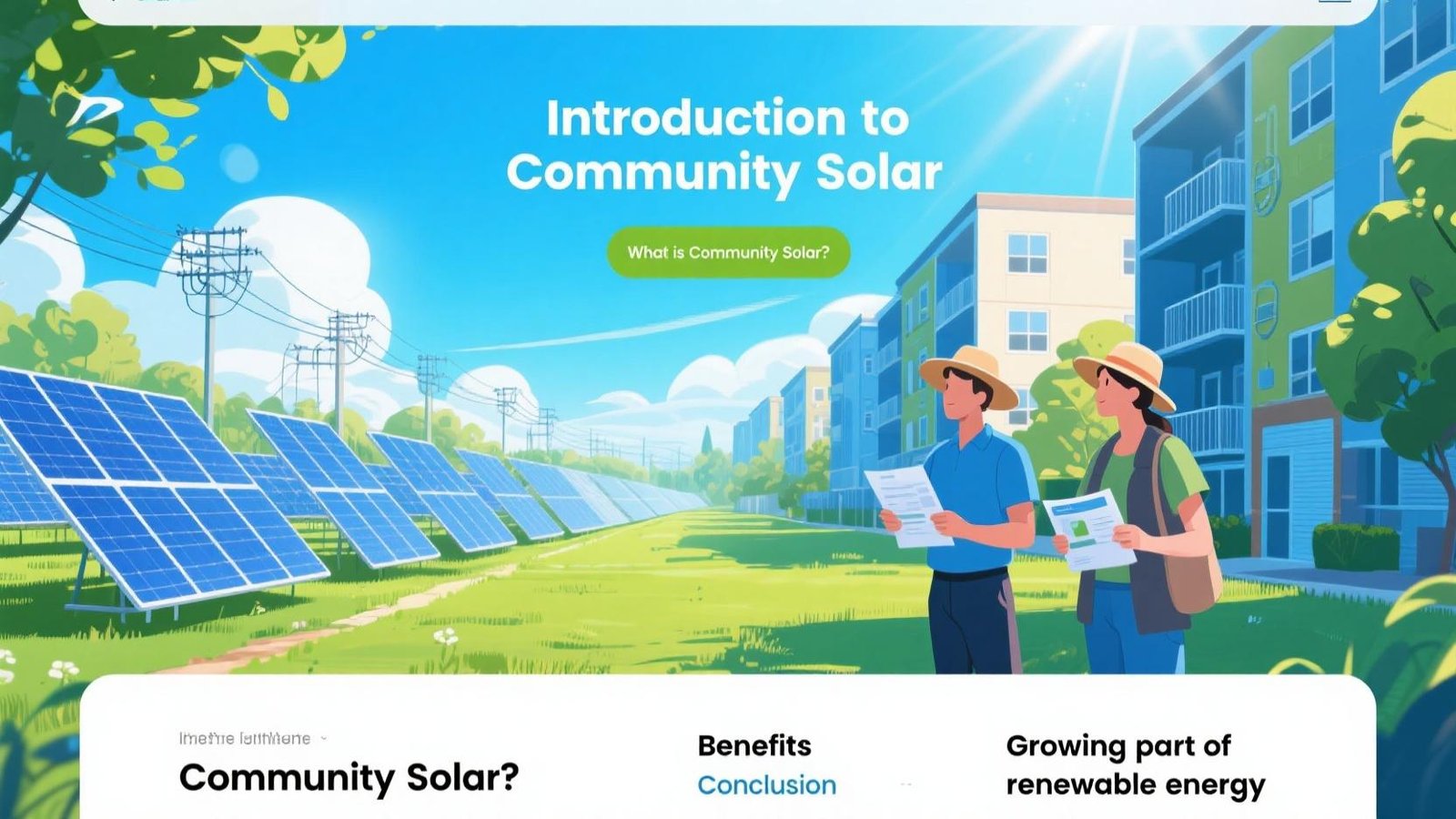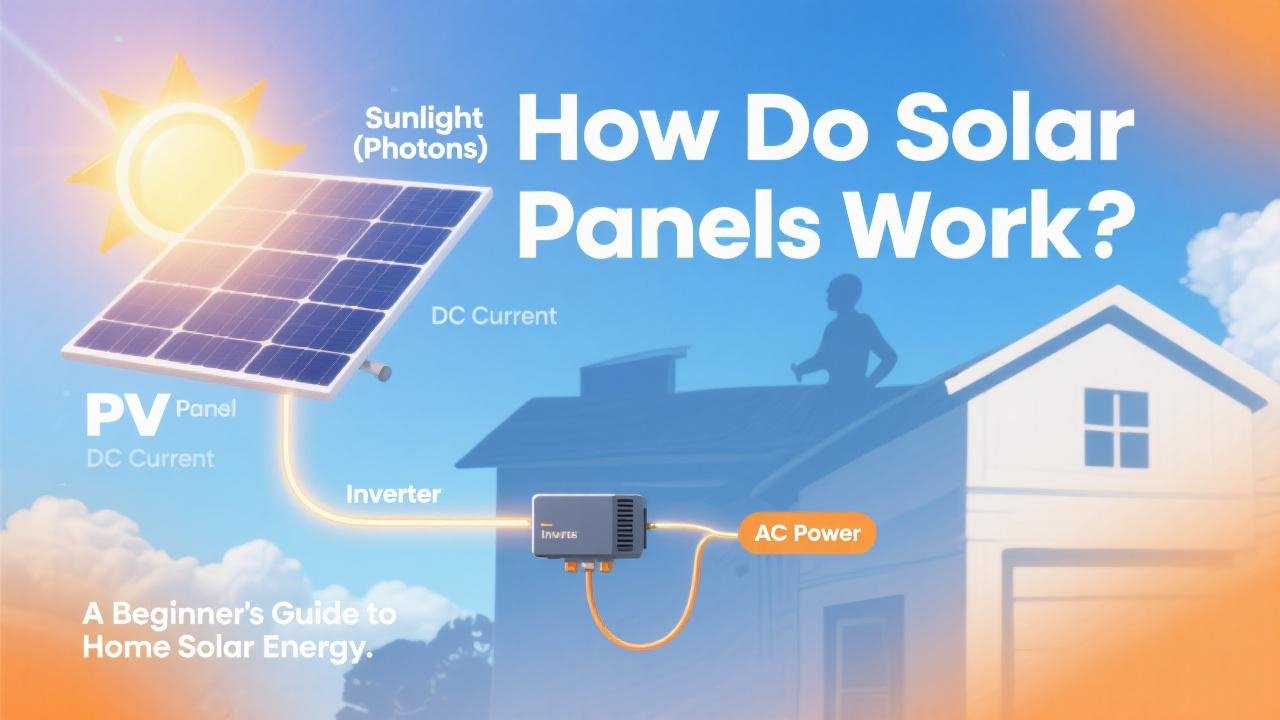Introduction: Solar Power for Everyone
The dream of powering your life with clean, renewable solar energy isn’t limited to homeowners with perfectly sunny, spacious rooftops. What if you rent your home, live in a condo with HOA restrictions, or have a roof shaded by beautiful, mature trees? Traditionally, these situations might have seemed like barriers to accessing solar power. However, community solar programs are changing the game, making the benefits of solar energy accessible to a much broader audience.
This guide will explain what community solar is, how it works, its pros and cons, and how platforms like EnergySage can help you find and join a project in your area.
What is Community Solar?
Community solar, sometimes called “shared solar” or “solar gardens,” refers to a solar power project where the electricity generated is shared by multiple community subscribers. Instead of installing panels on your own property, you subscribe to a portion of a larger, off-site solar farm located in your utility service territory.
- How it Works:
- A developer builds a solar farm in a suitable location.
- Local residents, businesses, and organizations can subscribe to a share of the electricity produced by this farm. The size of your share is typically based on your average electricity usage.
- The solar farm feeds the electricity it generates directly into the local utility grid.
- As a subscriber, you receive credits on your monthly electricity bill for your share of the power produced by the community solar project. This is often managed through a system called “virtual net metering.”
Essentially, you’re benefiting from solar energy without having to install or maintain any equipment on your own property.

Who is Community Solar For?
Community solar is an excellent option for a wide range of people, including :
- Renters and Apartment Dwellers: If you don’t own your home, you typically can’t install rooftop solar. Community solar offers a way to participate in solar energy.
- Homeowners with Unsuitable Roofs: Your roof might be too small, too shaded, face the wrong direction, or be made of a material not conducive to panel installation (like slate or wood shingles).
- Condo Owners or Those with HOA Restrictions: Homeowners Associations (HOAs) sometimes have rules that restrict or prohibit rooftop solar installations.
- Individuals Seeking Lower Commitment: If you’re not ready for the long-term investment and commitment of owning a rooftop system, community solar offers a more flexible alternative.
- Budget-Conscious Consumers: Community solar often requires little to no upfront cost, unlike purchasing a rooftop system.
- Environmentally Conscious Individuals: Anyone who wants to support renewable energy and reduce their carbon footprint can benefit.
Pros of Community Solar:
- Accessibility: The biggest advantage is that it makes solar accessible to nearly everyone, regardless of homeownership status or roof suitability.
- No Upfront Installation Costs (Usually): Most community solar subscriptions don’t require a large initial investment. Some programs might have a small sign-up fee or a deposit, but it’s typically far less than purchasing a system.
- Reduced Electricity Bills: Subscribers receive credits on their utility bills, which can lead to annual savings, often estimated at 5-15%.
- No Maintenance Responsibilities: The community solar project developer or operator is responsible for all maintenance, monitoring, and repairs of the solar farm.
- Flexibility and Portability: If you move within the same utility service territory, you can often transfer your subscription to your new address. If you move further away, selling or transferring your share to someone else is usually possible.
- Supports Local Clean Energy: Subscribing to community solar supports the development of local renewable energy projects and contributes to a cleaner grid.
- Optimal Siting: Community solar farms are typically built in locations optimized for maximum sunlight exposure, potentially leading to better energy production per panel than some residential rooftops.
Cons of Community Solar:
- No System Ownership: You don’t own the solar panels or equipment. This means you don’t directly benefit from any increase in property value associated with owned solar systems.
- Ineligible for Direct Tax Credits: As a subscriber, you typically cannot claim the federal solar tax credit or other ownership-based incentives. These benefits usually go to the project developer/owner.
- Savings May Be Modest: While you will likely save money on your electricity bills, the overall lifetime savings are generally less than what you might achieve by owning a rooftop solar system.
- Billing Can Be Complex: You might receive two bills: your regular utility bill (showing your solar credits) and a separate bill from the community solar provider for your subscription. Understanding the net savings can sometimes be confusing.
- Contract Length and Terms: Subscription agreements can be long-term. It’s important to understand the contract length, any price escalator clauses (where your subscription rate might increase over time), and cancellation policies.
- Geographic Availability: Community solar programs are not yet available in all areas or with all utility companies. Their availability depends on state and local policies.
- No Backup Power: Unlike an owned rooftop system paired with battery storage, community solar does not provide backup power during grid outages.

Finding a Community Solar Project with EnergySage
If community solar sounds like a good fit for you, the next step is to find a project in your area. EnergySage makes this process easier:
- Community Solar Marketplace: EnergySage provides an online platform where you can search for and compare community solar options available in your region.
- Transparent Information: You can find details about different projects, subscription terms, estimated savings, and provider reviews.
- Simplified Enrollment: EnergySage often facilitates a streamlined enrollment process for participating community solar providers.
- Educational Resources: Learn more about how community solar works and if it’s right for you through EnergySage’s extensive Learning Center.
Expanding Access to Solar Benefits
Community solar is a vital and growing part of the renewable energy landscape, offering a practical and accessible way for more people to benefit from solar power. Whether you’re a renter, have a shaded roof, or simply prefer a lower-commitment option, community solar allows you to reduce your electricity bills, support clean energy, and lessen your environmental impact.
While it may not offer the same level of financial return or direct ownership benefits as a rooftop system, its inclusivity and ease of access make it an attractive choice for many. Explore your options through resources like EnergySage to see if a community solar project near you can help you tap into the power of the sun.



